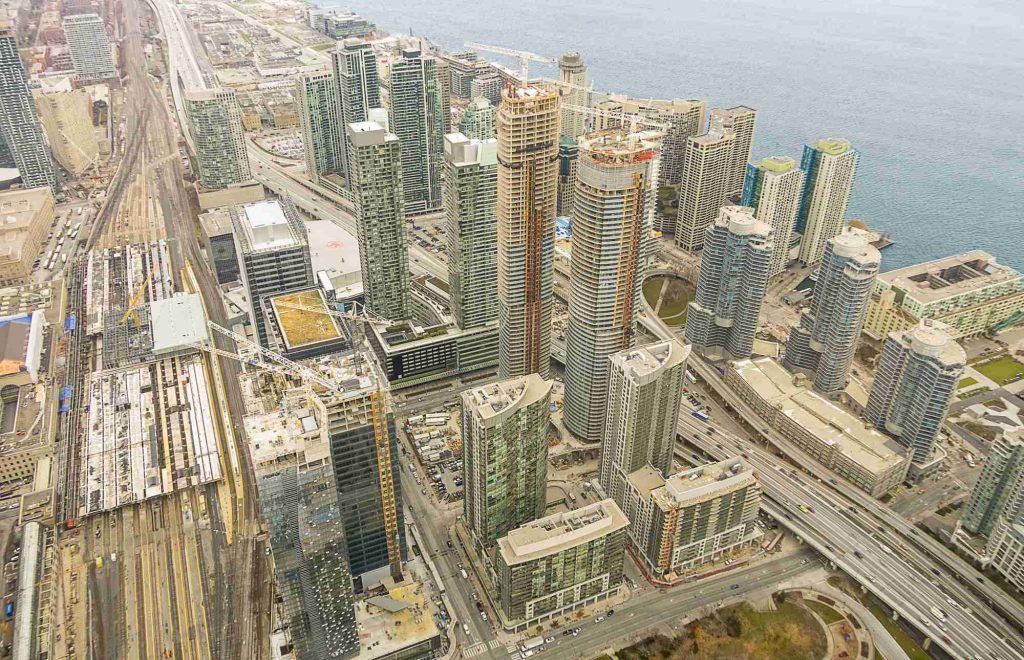Introduction to Find an Apartment in Toronto
Whether you’re moving to Toronto or going abroad, finding a suitable place to live is always a challenge. Need some help? Here are six smart ways to find an apartment in Toronto.
Once you land where you want to move, there are a few tips on how to quietly get what you want before you do. Most major U.S. cities provide tenants with the option to purchase a condo or apartments, which in turn comes with all of the rights of homeownership: maintenance, utilities, parking, rights to respond to abnormal situations, etc.
Incentivized by low taxes, easy parking, beautiful locales, and possibly lower costs, many foreign buyers look to international locations for both their purchase price and how affordable their move will be priced. In addition to that, buyers can look for neighbourhoods with lower crime rates, preexisting infrastructures, and/or other livability factors. There’s really no other choice, as most cities are discovering how difficult it is to integrate new residents into established neighbourhoods.
U.S. cities like New York, San Francisco, Seattle, and Washington, D.C., have all had to contend with gentrification sparked by attributes like proximity to cultural or sporting events and increased housing size, affordability, and quality.
For these reasons and more, buyers will tend to look toward new commercial districts for prime real estate. These are the classified and industrial areas along major roadways, often mandatory for any major construction project, in addition to other areas with high density and mature populations. And while Toronto is a great city for high-end residential real estate, there are other areas that offer lower unit prices and more desirable environments.
If all goes well, you’ll save thousands of dollars on your move and possibly get more security for your home, which you’d need for reasons beyond security while finding an apartment in Toronto.
Like all real estate projects, your junk storage is on you — you’d still have to face a slew of inspections and get approved by the municipality, but homeowners who want to renovate or build a new home in a prime area don’t have to go through these lengths while finding an apartment in Toronto.
It can be a simple tour of the local municipality’s property management report or an appraisal. You could get help from a professional property manager or an experienced realtor.
Reasons to Hire a property manager often include a large commission structure, flexible working hours, and the ability to negotiate hard-to-get savings. Getting a property management firm won’t set you back necessarily — in some cases, they’ll only charge you a flat fee or “upfront fee.” But they can help you find the property management company you’d love, find out around-the-clock assault prices, and negotiate for accounts that can stretch to six months or longer. You won’t have to worry about an upfront fee while looking for an apartment in Toronto.
When relocating, there’s no sure way of telling whether or not it’s a good fit. This is why you need to understand what’s unique about the city you’re moving to and what makes it appealing to other potential renters and homeowners as an option to find an apartment in Toronto.
Always start off by looking at places to live in earnest by zooming in on their neighbourhood. A one- to a three-bedroom apartment in the city centre has a unique vibe, so get a feel for what’s out there.
When you’re taking inventory of cities in your migration process, you need to understand how diverse they are. Every city has its own character, and you don’t want your prospective rental home to be completely incompatible with your personal lifestyle.
At the very least, while finding an apartment in Toronto ensure that what you’re looking at isn’t too far away from where you live, or else you may end up regretting your decision. Consider screening permanent listings to see if they can accommodate your commuting time.
The city you choose to move into depends on your specific needs and preferences. This is why gathering information about the area is important for making a decision that’s both financially feasible and enjoyable.
Even though it may be tempting to look at less-expensive housing options, you may end up spending more money on housing over the course of your lease. Rather than bailing on your housing plan mid-rental, save money by researching affordable housing options in the city you’re going. This way, you can save permanent money by not bailing on your housing dream at the drop of a hat.
You can do exactly this by:
Hostelworld.com is a great website for finding more affordable/warranty places to stay. If you’re not sure of the amount you’d need for your next rental, consult them. The website also includes guesthouses where you can register and pay for your stay.
It’s a good idea to consider the price point, but the same applies to location. Check out which neighbourhoods are considered the hippest, or simply where they’re located on a map, and where other potential rentals in the area can be found. The city you choose to relocate to full-time depends on three key factors:
A few considerations to keep in mind for this stage include:
Next, figure out if possible rentals nearby are affordable and manageable, especially if you have kids. Definitely ask for last summer or first-time home rental budget details, as this will help you determine what you can potentially cover.

Whether you’re relocating to Toronto or moving abroad for an extended period of time, finding a home isn’t always easy. Finding a suitable place to live can easily become the most challenging and expensive task. Even with the help of real estate agents, searching for an apartment within the city can be confusing — especially if you plan to do a lot of travelling during the apartment hunt.
Real estate agents use a point system to price properties. For example, if your budget is 300% of the local media and your preference is location A, the agent may suggest property A and tell you that it is unoccupied. For example, an agent offers me an apartment in which someone else lives. I need to invest 10% before I can move in.
There are several companies that provide services to help that process. Most of them charge a flat fee to help you find a flat, including apartment search, property tours, and bellwether searches, which cover the remaining cost.
But renting can cost an excessive amount of money. Leaving a rental deposit for a brand new apartment can easily reach 5% of the monthly cost, especially for newcomers with a small budget. Even renters who bought something on the same day as the move-in can find themselves with a large bill if they decide to move out after a few months.
Finding an apartment in Toronto is usually more complicated than you’d think. Depending on the types of properties you’ll be looking at and whether you will be doing a lot of travel, you can expect to spend upwards of 40% of your budget on housing.
Before you start your search, you will need to ask several questions about the different types of places in Toronto. The answers you get from these questions will come in handy when you want to buy an apartment in Toronto later. Here’s what you need to know:
You can choose between listings from all types of property types, including apartment houses, condos, and duplexes.
When I bought my first place in Toronto in 2017, there were only two listings for rentals in the area.
Now, there are about 250 properties in the city for rent, and the rate for these rentals varies. For example, an apartment in the trendy Yonge and Eglinton area can cost between $1,500 and $1,800 a month.
